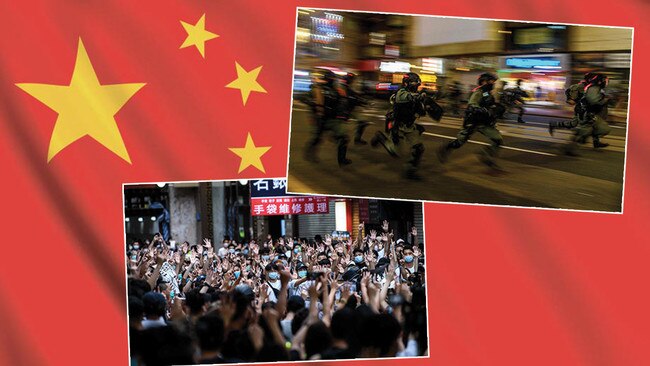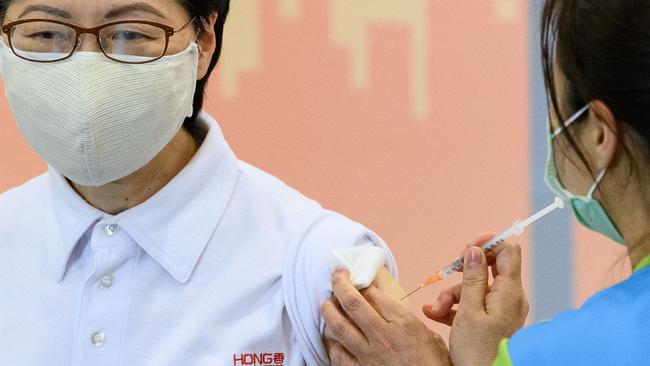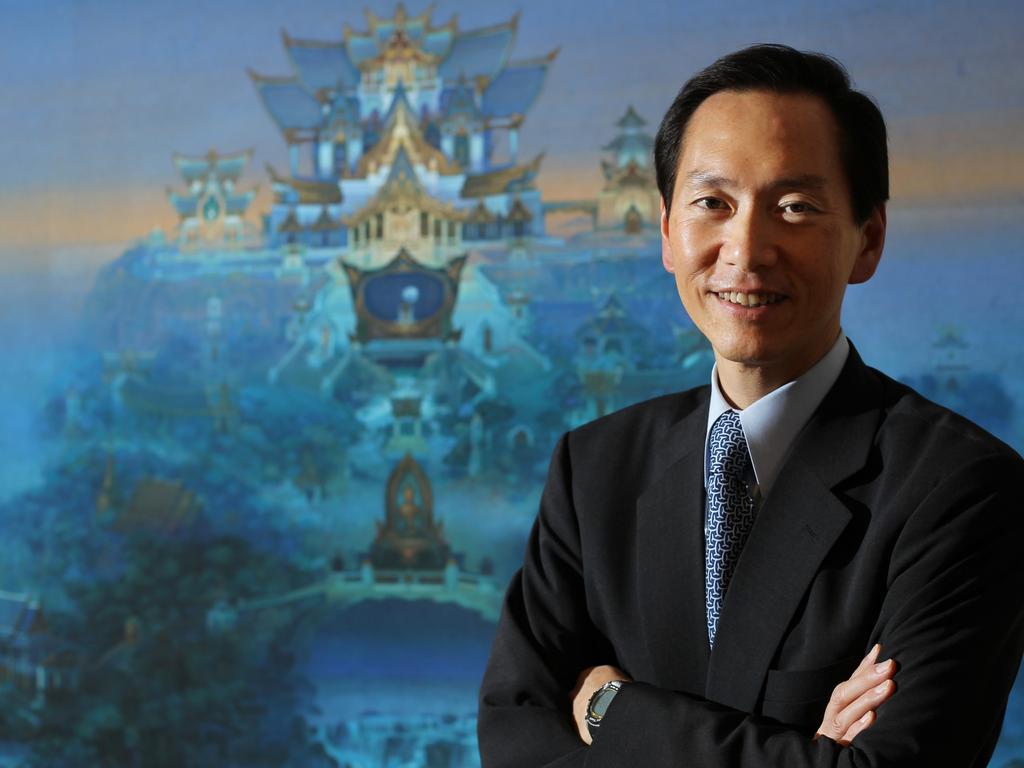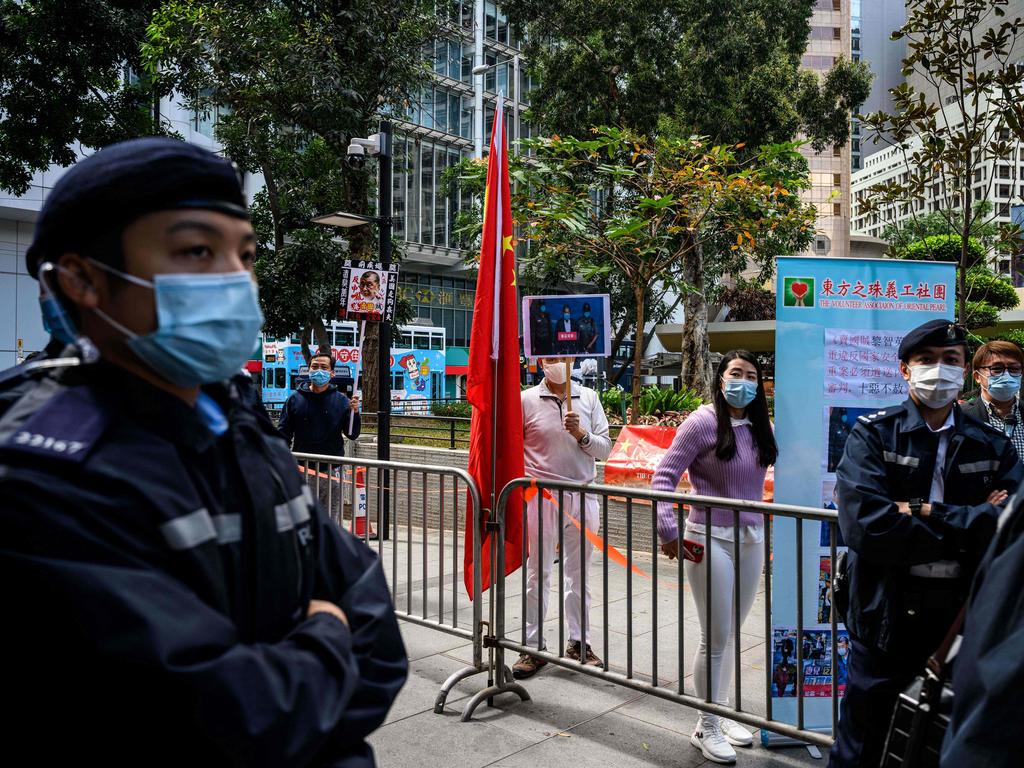‘Patriots only’: Beijing to impose patriotism rules on Hong Kong’s political system
China’s sweeping changes to Hong Kong’s political system will ban anyone ‘who goes against China’ from key posts.

Beijing will soon change Hong Kong’s political system to ensure only “patriots” can participate in the city’s politics, as it continues to eliminate “anti-China chaos” from the city.
Delegates from Hong Kong will fly to Beijing next week for the National People’s Congress, China’s biggest annual political gathering, where details of the political tightening are expected to be revealed.
Signally big changes were imminent, the Chinese Communist Party’s most senior Hong Kong official on Monday laid out Beijing’s non-negotiable parameters for the city.
“There is a red line: one should never do anything that harms the country’s fundamental system; that is, to do something that harms the socialist system led by the Chinese Communist Party,” said Xia Baolong, the director of the Hong Kong and Macau Affairs Office.
In his first public speech since he was installed in the role last February by President Xi Jinping, Mr Xia said the wide-ranging changes would cover posts in the executive, legislative and judicial bodies, as well as appointments to important statutory bodies.
“Key posts under every circumstances must not be taken up by anyone ‘who goes against China and disrupts Hong Kong’,” Mr Xia said.
“Those who stand in opposition to patriots are destroyers of the ‘one country, two systems’ principle and they should not be allowed to take a share of the Hong Kong special administrative region’s political power. Not now, not ever,” he said.
Stamping authority
Ensuring the Chinese Communist Party’s authority over the city has been a key priority of Mr Xi’s administration after the huge protests and later riots that began in June 2019, continuing for almost six months.
Beijing responded to the unrest — which was triggered by an extradition bill with mainland China but grew to demands for increased autonomy — by imposing a sweeping national security law on the city, which was revealed at last year’s NPC.
Nearly 100 people have been charged under the new security law, including teenagers arrested on suspicion of inciting secession and newspaper publisher Jimmy Lai, who was accused of collusion with foreign powers.
Anti-government public protests have almost entirely stopped.
Mr Xi cited the “patriots principle” last month during a virtual meeting with Hong Kong chief executive Carrie Lam, where he called it “a precondition” for resolving the city’s deep-seated problems.
The phrase was coined by China’s late paramount leader Deng Xiaoping, who said it was a key part of the “one country, two systems” formula for the former British colony.
Ms Lam said the impending reforms were only targeted at separatists and could allow Hong Kong to continue to enjoy more freedom that mainland China.
“One country, two systems is an innovative concept, and there are bound to be new challenges in its implementation,” she said at an event where she was given a coronavirus jab by the Chinese pharmaceutical company Sinovac.

“If we rectify it in accordance with the law, we may help (the model) go further, or we may face serious consequences if we turn a blind eye to (its issues).”
In his lengthy address, M Xia said “different political opinions” were still allowed in the city.
“The scope of ‘patriots’ was, is, and will be extensive in the future. Hong Kong has a blend of Chinese and Western cultures and a diverse society,” he said.
He acknowledged that some Hong Kongers do not know much about China and “even have various prejudices and prejudices against the country and the mainland”.
“The central committee understands and tolerates the attitudes of these people,” he said, encouraging them to participate in Hong Kong’s governance.
But he said they must “draw a clear line with anti-China chaos.”
Years of unrest in Hong Kong have split the city of 7.5 million, one the world’s financial centres. Thousands of Hong Kongers worried about Beijing’s increased control have begun fleeing to countries including the UK, Australia and Canada, which were sympathetic to the pro-democracy movement.
After the 2019 unrest, some Chinese families returned to the mainland — where public sentiment was overwhelmingly against the protesters — out of concern for their safety.
The city’s administrative class are also under tremendous pressure.
Bernard Chan, the convener of Ms Lam’s executive council and one of the city’s most senior political figures, said he had no desire to succeed her in the role.
Mr Chan, who is also president of insurance company Asia Financial, has been repeatedly mentioned as strong candidate at the next chief executive election in March 2022.
“Are you kidding me? I don’t think anyone would want that job,” he told The Australian.
Mr Chan said years of social unrest, followed by the COVID-19 outbreak, had made Ms Lam’s job “very unpopular”. “She gets criticised by everybody … Even pro-China people are upset with her,” he said.








To join the conversation, please log in. Don't have an account? Register
Join the conversation, you are commenting as Logout